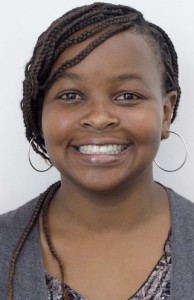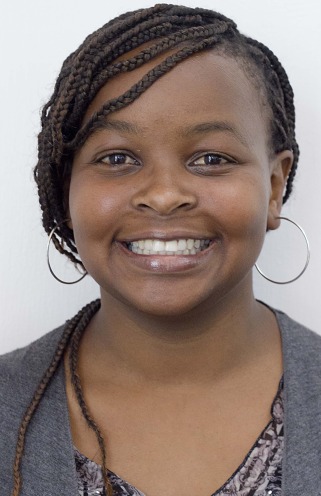
- Anne Salim is the Project Manager for the
- ICT 4 Social Innovation Conference
At the ICT 4 Social Innovation Conference we bring together practitioners and stakeholders in the education and health sector across Africa, to engage and come up with innovative ways to tackle everyday challenges by developing and sharing innovative solutions in Information and Communication Technolgolgies (ICT). My organisation, iHub exists to catalyse the growth of the Kenyan tech community. It does this by developing and connecting people, by supporting start-ups and by surfacing information. iHub is the first such space in Kenya and has spurred a revolution in the tech ecosystem across the African continent over the 5 years that it has been in existence. Several similar initiatives have subsequently sprung up across Africa. We are nurturing the best innovation and entrepreneurship ecosystem; one that constantly challenges and influences technology, one that can be replicated across the continent, as we believe that African innovation will play a critical role in shaping the future of technology globally.
There are many different interpretations of the term ‘Social Innovation’, to me it means people coming up with solutions to the problems they face in their society, these solutions specifically target society as a whole rather than individuals.
At iHub Research we run an innovation program for kids aged 10 – 15 years. The iHub Waza Experience seeks to spur creativity, problem solving and improve communication skills for Kenyan kids. Waza which means ‘active thinking’ in Swahili, aims to mold the kids into the next generation techies who will ultimately create innovative solutions for Kenya and at a broader level, Africa. The guiding principles and methodology used in this program is ‘Design Thinking’ developed at Stanford University. This five day program takes the kids through a holistic view of the innovation process, with the bottom line being, developing a prototype at the end of the program. (see videos below)
One sector cannot survive without the other. For example, innovators are not necessarily marketers or financial people, therefore they need to seek help from other people who can help them along. The vision of this event and the activities within, is to create a network of people working across sectors to share knowledge and ideas, to adjust and develop solutions for existing challenges in our communities. Maintaining a network is hard work, people need to be committed to working together to build it and work even more to grow it. Together with the delegates at the conference, with the support of our partners, SPIDER ( The Swedish Programme for ICT in Developing Regions) we hope that this network will join together exisiting and future networks to create a community for ICT4Social Innovation in Africa.
Our partner Spider, has supported the work of organisations and institutions working with ICT and development since its inception in 2004. Majority of Spider’s partners are pushing boundaries and leading change through needs-based projects in East Africa, Cambodia and Bolivia and with a successful network model in operation, Spider is keen to witness how social innovation from the African continent can be scaled both within and outside its geographic boundaries.
I would like to extend a warm welcome to all the delegates and supporters, and my aim as the project manager for the event is that delegates leave with a will for further collaboration to push forward development! And a pan-African network for social innovation!

